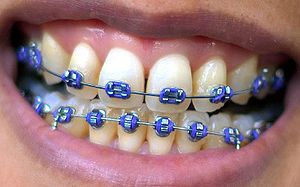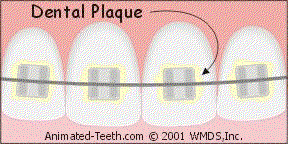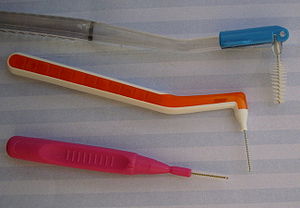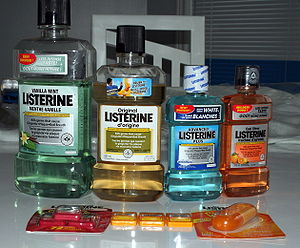
Adult orthodontic braces care
There is a common conception of adult orthodontic braces being used to straighten teeth but many of us do not actually understand the amount of care required in maintaining them. Adult orthodontic braces care is important as it is also a crucial part of treatment, as much as teeth straightening. Its importance is commonly undermined as orthodontic braces are usually associated with the orthodontist taking a more active determinant role in treatment, rather than the patient. But this is not true as adult orthodontic braces care is as, if not more important due to its responsibility being solely dependent on the patient. This will and can significantly alter or influence the outcome of orthodontic treatment.

Early decay asssociated with poor orthodontic braces care
Poor care for braces can not only delay treatment, but also pose extreme risks of losing teeth structure due to dental decay. It can also cause an aesthetic issue when front teeth are involved. It is common for poor orthodontic braces care to present as a generalized problem, hence usually more serious and can be difficult to manage at times. Thus it is in both the dentist and the patient’s best interest for preventive and proper adult orthodontic braces care to be carried out to minimize complications of treatment and active oral diseases.
How to keep orthodontic braces sparkling clean?
Adult orthodontic braces care is important as the wire and brackets can provide a vast space for microorganism to adhere. Prolonged stagnation of bugs and food sugar on tooth surfaces can cause dental decay or dental caries. Hence it is recommended to brush after every meal if possible to prevent occurrence of decay. Tooth brushing with manual toothbrush are usually adequate but most patients will benefit from usage of electric toothbrushes such as Oral B, Braun and Colagte due to its superior ability in removing plaque. While brushing after meals is most desirable, there are times where this proves to be impractical especially for working adults wearing orthodontic braces.

Adult orthodontic braces care: Interdental brushes
The alternative to thorough tooth brushing is interdental brushes, available from your local supermarkets or pharmacies. It looks like a mini bottle brush with a plastic handle and this can be used quickly in between the wire and brackets to remove impacted food from tooth surfaces. Interdental brushes are also good for gaps or spaces that may be present in between teeth during orthodontic treatment.

Oral care products: mouthrinses
Rinsing your mouth thoroughly after meals can also be helpful to minimize food stagnation on teeth and orthodontic braces. This is best done with plain water or mouthrinses such as Listerine or Colgate. Although this does not remove all the plaque or food, both Listerine oral care and Colgate oral care have additional advantage of reducing metabolism of bugs, hence reducing occurrence of dental decay. But this can be expensive and alcohol containing mouthwashes can be very drying if used in a long term.
It is also recommended to floss your teeth regularly. Special floss such a superfloss has hardened ends, allowing floss to be thread through wires easily. Normal floss can still be used with special adapted loops or without. Though it may be hard to floss, it is important to keep your oral health at its best with orthodontic braces.
If oral hygiene care is a problem, orthodontists may recommend Invisalign as opposed to conventional orthodontic braces as the clear aligners are removable, making it easier to clean both the appliance and teeth.
Maintaining orthodontic braces to reduce treatment delays

Detached bracket from tooth
Besides keeping good oral hygiene care, adult orthodontic braces care also include maintenance of the orthodontic braces itself. Many of use failed to maintain our orthodontic braces adequately resulting to frequent breakage, loosening or detachment of braces components. While this seems trivial to many, there is actually a valid reason behind the orthodontist’s strict advice to maintain your orthodontic braces. Most people perceived orthodontic braces breakage or debonded bracket as simply requiring extra cost and appointment time to fix. This although is true, does not remain the key reason as the main consequence is in fact much more complicated because any breakage or detachment will indefinitely disrupt the mechanism of orthodontic braces until fixed. This is extremely important especially in early stages of treatment and can significantly prolong treatment period. It is estimated that for each breakage or detachment event, the period of orthodontic treatment will be delayed for at least a month.
To prevent breakage or detachment of orthodontic braces, it is important to avoid chewing on certain food as outlined by your orthodontist. This usually means avoid biting directly with your front teeth as forces may break the wire or brackets. It is advisable to cut up food such as apple, carrot or bagel into small pieces and then chewed with back teeth rather than incising with front teeth. Some food, especially hard ones are to be avoided all together and this include bubble gum, toffee or any sticky candies, popcorn, nuts, beef jerky or ice cubes. It is also advisable not to bite on fingernails or other objects such as pens.
What to do in case of breakage, loosening or detachment of orthodontic braces
It is of utmost importance to contact your orthodontist immediately to schedule for a repair. This can help minimize its implication on your treatment.
Pingback: Tooth straightening with invisible braces | Intelligent Dental
Pingback: Revival entry, hopefully « s0hp0h (。◕‿◕。)
Pingback: 3 Types of Orthodontic Braces You Must Know About | Intelligent Dental
Pingback: Toothbrushes for Braces and Orthodontics | Intelligent Dental
Pingback: What Dental Corrective Surgery Could Do For You Part 1 | Intelligent Dental
Pingback: After orthodontic braces treatment: not the end | Intelligent Dental
this is nice one and very good
Pingback: All You Need To Know About Tooth Straightening | Intelligent Dental
Thanks for this wondrous post, I am glad I observed this site on yahoo.